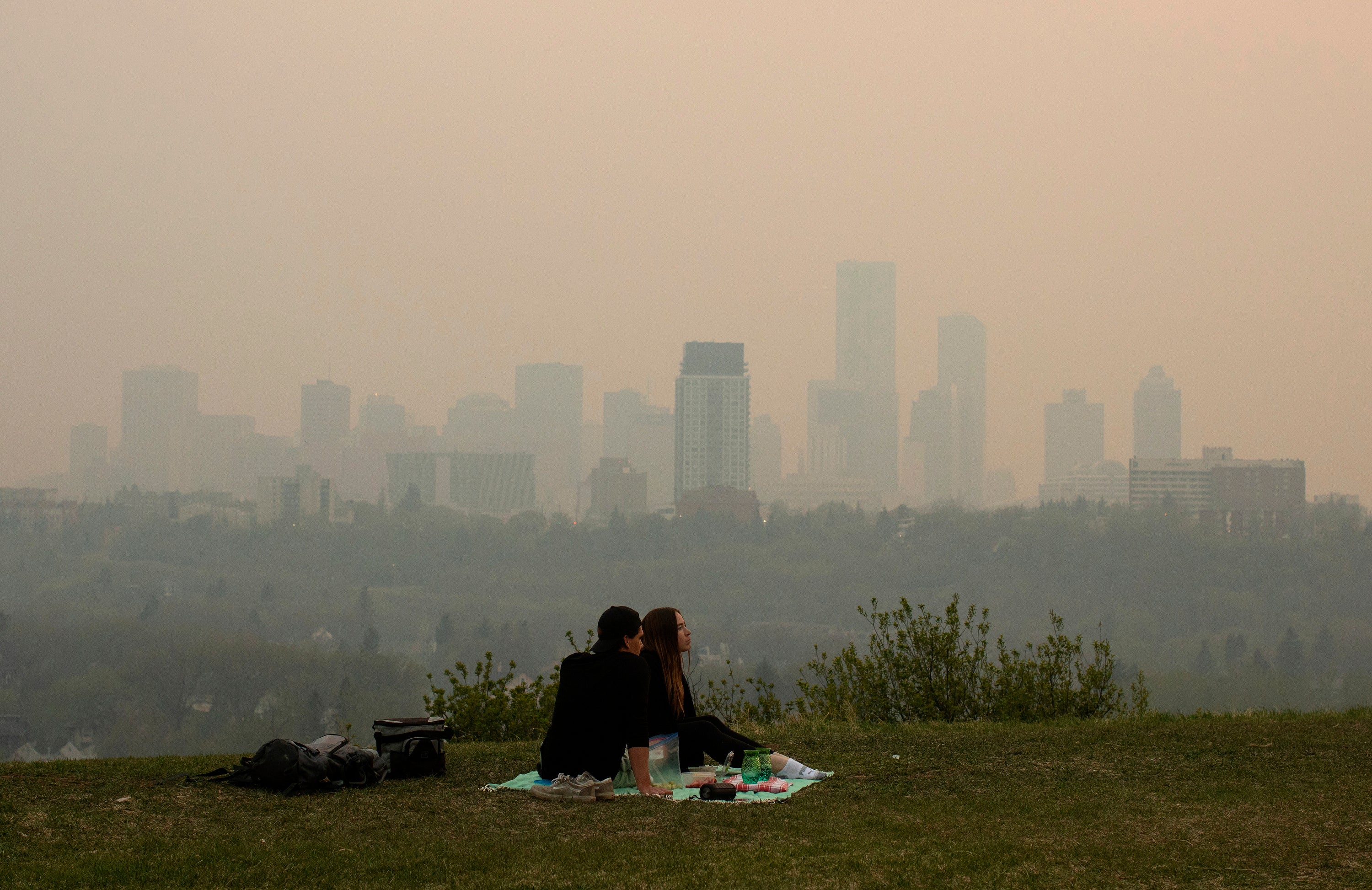Wildfire in Canada's British Columbia forces thousands to evacuate. Winds push smoke into Alberta
Canadian authorities are urging all remaining residents in the northeastern part of the province of British Columbia to leave immediately, despite improving weather conditions, after thousands have already been evacuated due to a fast-growing wildfire

Canadian authorities are urging all remaining residents in the northeastern part of the province of British Columbia to leave immediately, despite improving weather conditions, after thousands have already been evacuated due to a fast-growing wildfire.
The blaze, which started Friday, almost doubled in size the following day, reaching about 17 square kilometers (4,200 acres). BC Wildfire Service maps showed the fire burning just a few kilometers (miles) west of Fort Nelson’s city limits.
Online footage shared by locals showed thick plumes of smoke rising high into the sky with houses in the foreground. In some photos, haze seemed to cover wide areas.
The Northern Rockies Regional Municipality and Fort Nelson First Nation issued a joint statement warning people staying behind that “emergency medical services are not available, nor are groceries or other amenities.”
The municipality mayor, Rob Fraser, said most of the 3,500 residents in and around Fort Nelson, B.C., have been evacuated, adding that police were going door to door to ensure everyone got out.
He said the Parker Lake fire is one of three major wildfires near Fort Nelson, located in the far northeastern corner of British Columbia, about 1,600 kilometers (994 miles) from Vancouver.
Health authorities said Fort Nelson General Hospital has been safely evacuated and closed until further notice.
Resident Bud Streeper posted a video update from the area on Saturday, saying that the winds that had whipped the Parker Lake wildfire into exponential growth on Friday night diminished overnight, reducing fire activity around the town.
The high winds pushed smoke from the blaze into parts of neighboring Alberta on Saturday, putting the city of Edmonton under an air quality advisory with hazard levels rated at 10-plus — or “very high risk” — forecast.
Meteorologists are not anticipating rain and have advised people to stay indoors.
Authorities in Alberta also issued an alert about a wildfire nearly 25 kilometers (15.5 miles) southwest of the oil sands city of Fort McMurray that can impact visibility on highways in some areas. No evacuation order has been given so far.
In 2023, Canada witnessed a record number of wildfires that have also caused choking smoke in parts of the U.S. and forced tens of thousands of people to evacuate across British Columbia.